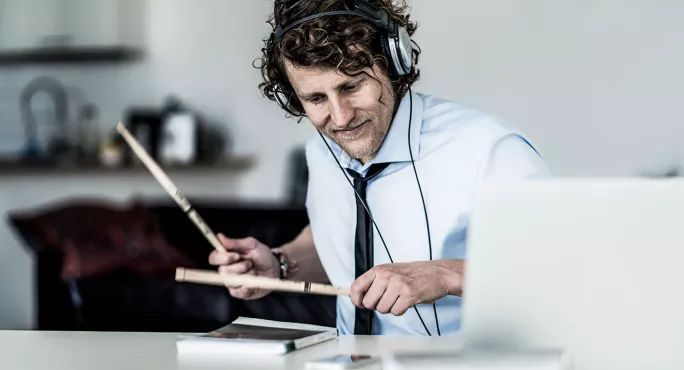Metacognition is learning about your own learning. We teachers ask pupils to evaluate their own learning all the time. But what about teachers? What are the things we can do to really immerse ourselves in the learning process again, to experience what our pupils experience and what is perhaps long since forgotten?
Continuous professional development is an essential part of most careers today. But what CPD should you be targeting? CPD comes in many different shapes and was categorised by teacher and Edinburgh Napier University academic Colin McGill into “subject specific” and “generic” CPD.
I have attended many CPD sessions over the years and what has stood out for me is not necessarily these organised sessions but rather the discussions with my colleagues. For example, at the end of the day, spending 30 minutes talking with a colleague about issues I might have had with a certain lesson. Maybe a 15-minute weekly coaching session is something to incorporate into your department, as one head of chemistry in London suggested in this 2019 article.
My first teacher-mentor guided me through the tough initial few years of teaching and helped me get to grips with course content, progression and some curricula history and context. She was in the classroom next door and we were constantly discussing content, delivery and development ideas. Another major professional development influence is literature: if you haven’t got the subject-specific expertise in a department, then something like the Education in Chemistry site is an invaluable resource that I use weekly, if not daily, to check on teaching techniques, practical arrangements, ideas and safety. There is a wealth of professional expertise to tap into.
But I also want to suggest a third area. I recently took up playing the drums. I am not musical, I can’t read music, I never played an instrument at school. I thought I’d realise my dream and booked myself into lessons. I didn’t think it would last long. Almost a year in, though, I am loving it. And an unexpected result is that I am reflecting on how I am learning the drums and how my metacognitive processes (see this Royal Society of Chemistry article on metacognition from 2020) will mimic those of my pupils learning science. It is a revelation to be re-immersed in the learning process.
I was learning to play a piece of music and it was not good. I realised that I was not devoting enough time to my new hobby. No great surprise that, with increased effort, I got better.
As teachers, we should appreciate that nerves come hand in hand with assessment - certainly, I stumbled several times when I was making a recording of the track, which I equated with how assessment must feel for students. I am also appreciating the value of feedback, which has given me confidence to make corrections and play better.
As a learner you need to work hard to get results: you need to practise, you need to learn the language of your subject. But you also need to steel your nerves and trust in your abilities as you undergo assessment.
I would encourage anyone involved in assessing pupils’ abilities to put themselves through some form of assessment - maybe a coaching qualification, a language course, or anything in which you need to learn something new and have that learning assessed. That will help you reflect on what it is to learn - and how teachers teach.
Duncan Short is a chemistry teacher at Falkirk High School. He tweets @MrShortFHS_sci





